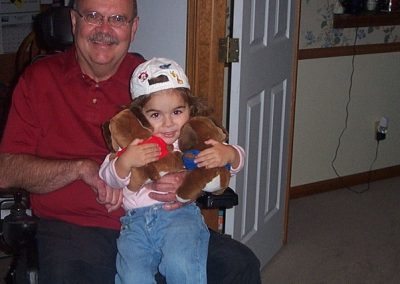I grew up in a home where my dad had multiple sclerosis and went from playing football with me at age 6 to a full-time wheelchair 19 years later. Later in life, while serving in the US Navy, I ended up with a different disability that lasted about 14 years. So when I read Joanne Limburg’s article “Am I Disabled?”, it really hit home (incidentally, I discovered this article while reading Hacker News).
The article was about Joanne’s moral struggle: do I disclose my disability on an application, or not. If you’ve ever lived with a disability, to disclose or not disclose is a very difficult question. There’s a huge amount of risk and personal vulnerability exposed by “Voluntary disclosure: Do you have a disability?”
For my Dad, simple things we do every day were hard because little things like doors and steps were huge obstacles to him. For me, it was working hours where I could not function without mid-day sleep. For my Dad, there was no way to hide the disability. For me, I looked, moved, and seemed to be 100% normal, so I could get away with not checking the box.
Disabilities are at their core a disadvantage. Disclosing them is risky. Most people will use the disclosure for good. Just enough people will a disability disclosure to deny opportunity or as a signal of weakness. At best, there’s a great fear of “reasonable accommodations” because if we make an allowance for one person, soon everyone will be requesting reasonable accommodations… So, when you check the Yes box, you are taking a huge risk.
As a business leader, it really falls on you to not fall into the trap of assuming a disability is a weakness. Most people with disabilities come with a resiliance and resourcefulness that is learned by surviving, prospering and thriving despite huge physical constraints being imposed on them. For my dad, going to a meeting outside his daily environment was an epic challenge that started with parking the car and getting into his wheelchair. Usually, the topic of the meeting was a minor problem compared to what he went through just to park the car and get into the conference room. He was incredibly good at thinking outside the box, because the box he lived in required he do so.
It’s not just the disability box that comes with a big question mark. The veteran box is filled with risk, too.
I was once excluded from consideration from a job because the employer thought all veterans were ticking time bombs or rigid authoritarians with no moral compass. I would not have found out, were it not for an HR person who called me after she quit over the CEO’s bad behavior. The company in question? Out of business.



